A Conversation with Maria Benjamin about The Wool Library
This month we had a wonderful catch up with Maria Benjamin who originally brought her project The Wool Library to PoP in 2021.
Maria is an artist and film maker, originally from Scotland who now lives in the Lake District and works with her partner John on Nibthwaite Grange Farm where they produce quality outdoor reared meat and rare breed sheep wool, and advocate sustainable, regenerative farming and high animal welfare farming. Maria runs the diversified part of the farm which includes holiday accommodation, soap and skincare from their Jersey cow’s milk, and selling raw fleece, wool, and tweed and wool products that they produce. She set up The Wool Library with her colleague Zoe to help British sheep farmers and the wool industry thrive.
We had a lovely conversation about her journey to Power of Place and how their project has lifted a field of energy for British wool farmers.
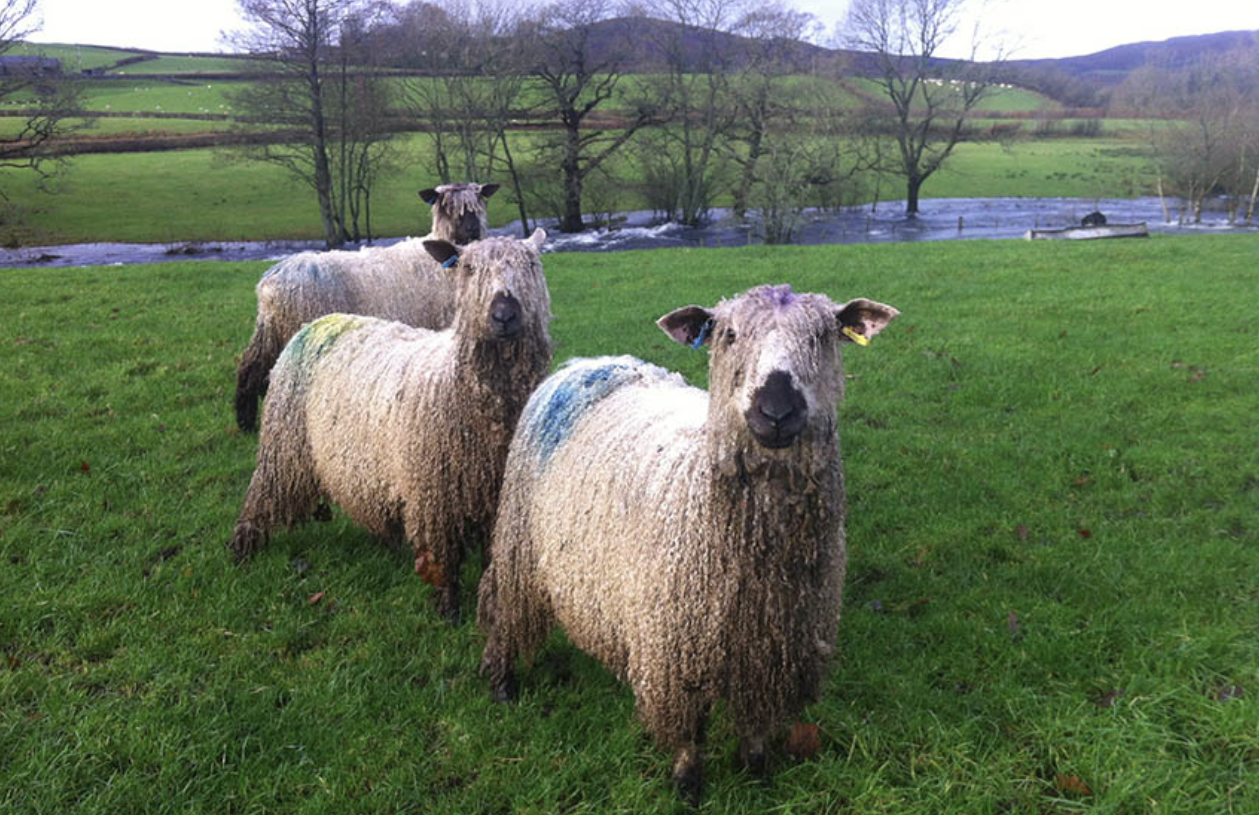
“Within the UK there are 72 breeds of sheep which is more than any other country in the world. Some are very rare, some more commercial and different breeds produce different types of wool. Some are good for making carpets and others for suits. Sheep from the Fells have very rough wool with a lot of hair in it, which is considered itchy, but that means they can survive in really poor conditions and their wool makes very strong cloth, great for outerwear. Lowland ground sheep that eat better quality grass have softer wool that’s better for jumpers. Each breed has characteristics that are shaped by the places they are from.”
What brought you to Power of Place?
I was working on the diversification business arm of the farm, I knew that diversification was crucial to the farm’s thriving. You know so many farmers have to do a second job elsewhere to boost their income and I thought why is it normalised to do another job to pay to do the job that you love? I wanted all our income to come from the farm so it was about adding value. Nature thrives through diversity, so we were looking for ways to do the same and developed the holiday off-grid accommodation, the soap products and selling our wool. But at the same time I felt some anxiety about being a business person In 2018 we won a business award which included some high level business board advice – a process which focussed on ‘streamlining’ and profit-making which didn’t feel right to me. At the time I had a friend who suggested I have some 1-2-1 sessions with Jenny. These were really helpful – her way of repeating back to me what I was saying enabled me to see that my way was different. Jenny helped me understand that my business was purpose driven, not profit driven. I was able to see it like biomimicry – it was complex, diverse and low input which is how nature thrives. Jenny doesn’t tell you what to do, but hears and respects what you are doing and she just drops little things for you think about along the way. Jenny’s sessions were a bit like 1-2-1 therapy and PoP was a bit like group therapy where you gain a lot because you are hearing about other people’s projects and you know you are not the only one working in this space. It’s less isolating in a way and people understand what you are taking about.
What effect did doing PoP have on you personally?
I wanted to do something that was creative – the accommodation made us money and it fits our values because it’s off-grid, eco accommodation but it was not creative or interesting and I knew I would be bored just doing that. So the soap making came about. And in fact during lockdown the accommodation was closed but I sold lots of soap – so a good example of how there’s strength in diversity.
A lot other people think you are not serious because you want to work in this other way that’s not about expansion, its not about getting my soaps in to a supermarket, and outsourcing manufacturing or selling through Amazon. It’s really about mindfulness in the business and thinking through what I wanted the business to be – its not about one size fits all – its about us working from our uniqueness. PoP was an awful lot about building my confidence in the business space. I would not be intimidated by a business man in a suit any more! I could start building the business in a way that was true to my core beliefs – it gave me a lot of confidence to start building the business in a way that wasn’t stifling it. It gave me power in terms of decision making.
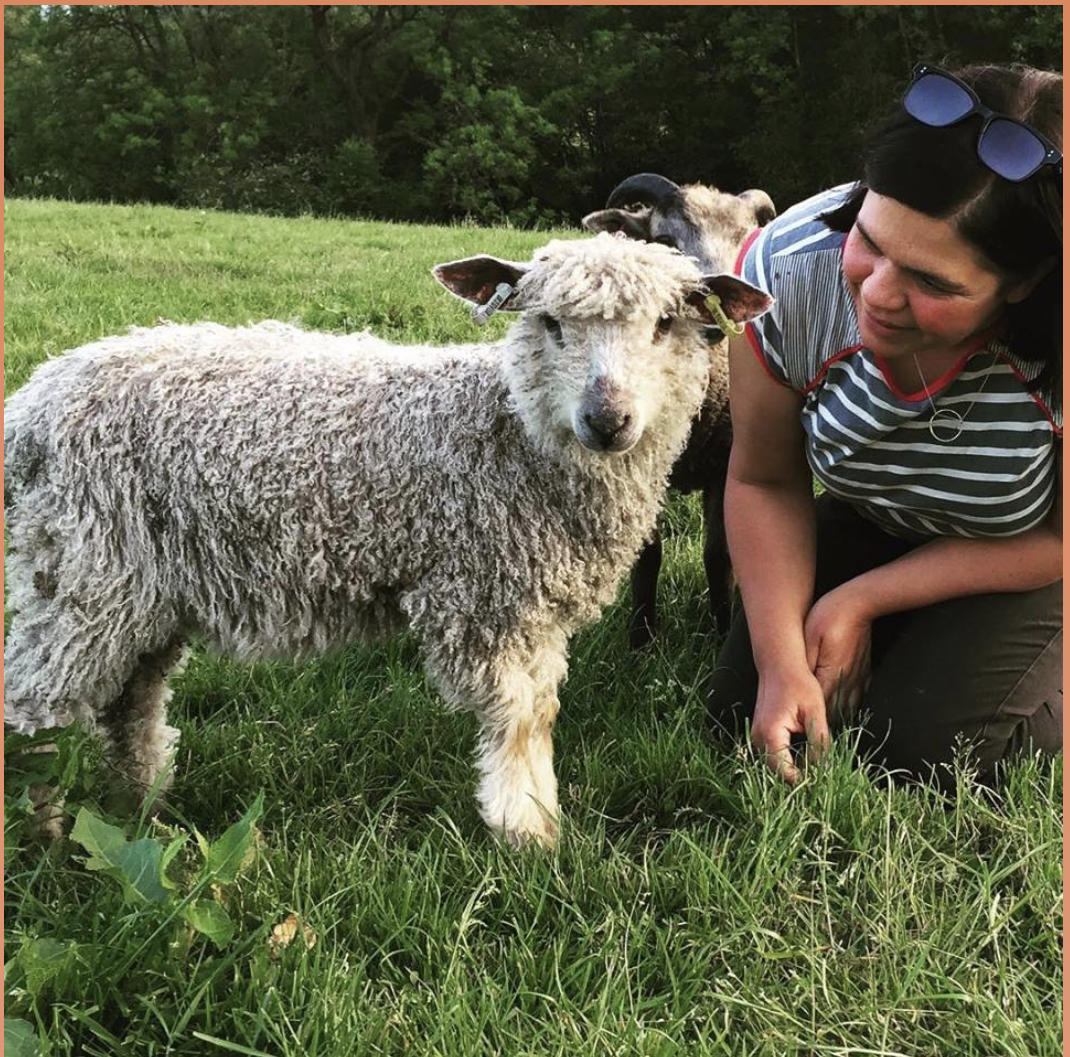
What impact did the Story of Place process have on you and your project?
The Wool Library project was just beginning as we started the course, and it was interesting to think about place – I felt really placeless, neither of my parents were from the UK. I was brought up in the UK but never felt anywhere was home because we were constantly moving, I felt a little like tumbleweed. And actually putting roots down somewhere – where you get nutrition from that place means that you can thrive – so I felt like I was living but not thriving as I tumbled about and I was not really giving back either. So on a personal level, the story of place made me realise that I was thriving in The Lake District and it made me see that was because I had put down some roots there – I had created a relationship with that place.
What other insights came through that process?
In the context of the project it made me think about how we got some wool processed in Italy – and we began to ask what can we do within our region, the North West of England, which historically is such an important site for wool production. So we thought let’s bring work to this area. We got asked why don’t we set up a mill in the Lake District? But why would we do this when these industries are already here and existed for a long time? Why don’t I give them my work. Why would I put in new infrastructure? When I don’t need to. So it was one thing to think about place, but then we were looking at who’s in the inner circle and also who is slightly outside of that because they are important too. It is not about keeping everything for yourself, it’s about valuing and building up the supply chain that works for you, and not taking work away from those who are skilled.
So it is about re-nourishing and healing the wider living system?
Yes, and the more that we do that, the more that they can feel confident to invest in their infrastructure because a lot of their machinery is very old – but we needed to build their confidence that more and more businesses want their facilities. So you want to see them thrive and it’s like our business can help nourish them as they support us too.
What were some of the key developments for you project?
In terms of our original idea around working with High Street brands to use British wool and British manufacturing, we found it very hard because of their profit-driven business models. It’s very much like ‘business as usual’ and they don’t seem to allow themselves to think about working in other ways that are better for people and the planet. So it’s been a slow process to have any impact. However, because we are a small and new company, we could easily pivot to try different approaches to the same problem. So now we’ve just got funding for our own knitting machine so we can make our own knitwear collections and knit for other small brands and designers who want to use British wool but haven’t found the right partners.
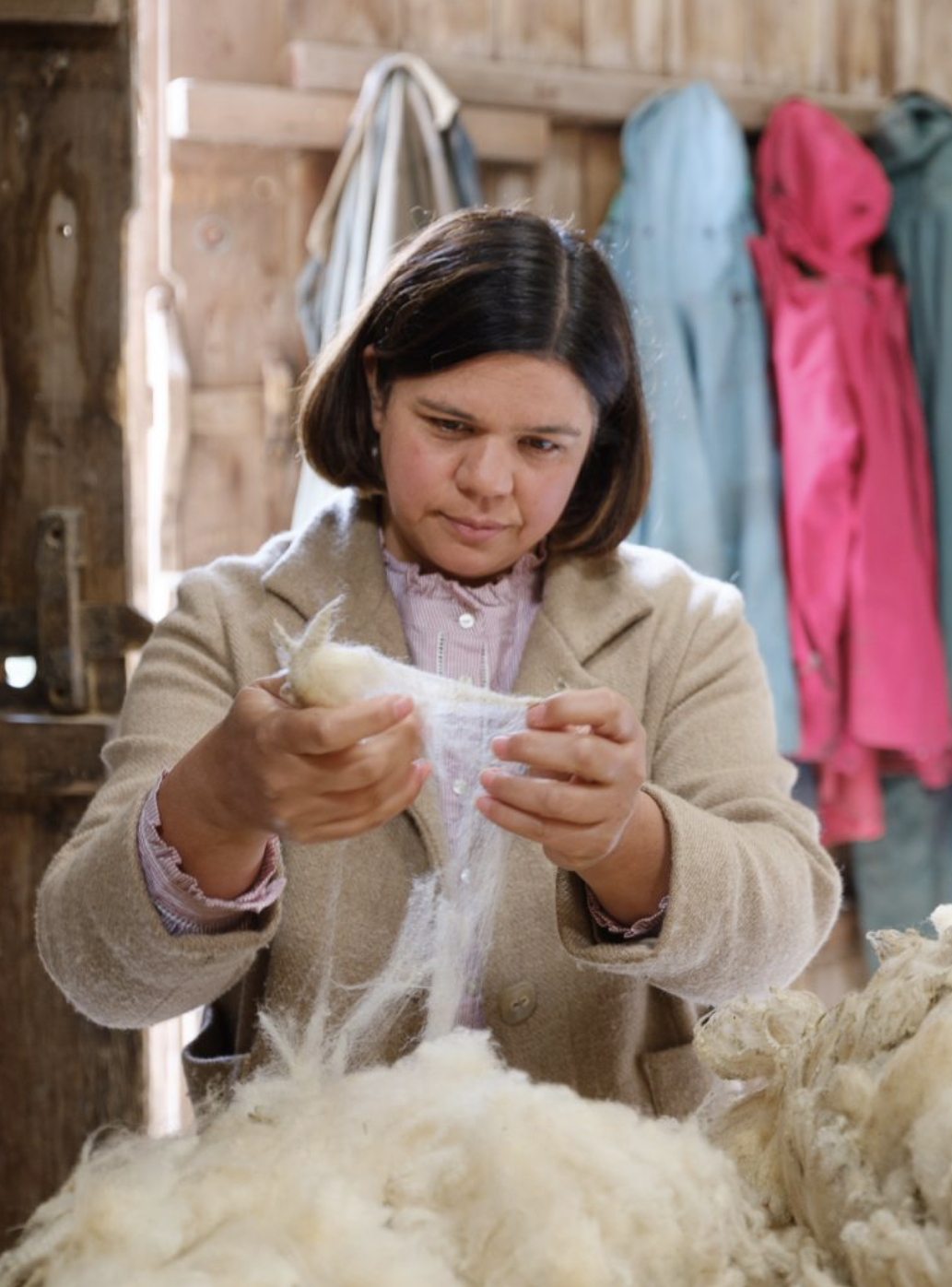
Would you say that is an evolution that came out of The Wool Library Project
Yes that is definitely an evolution. We seem to be working more in that space of consultancy, of supporting. We have supported a number of small brands. Glencroft is an example of quite an old British brand who normally bought all their wool from abroad and we helped them source wool within a five mile radius of their premises and that’s working incredibly well for them. So we are a lot more confident with that kind of scale, it’s a scale where we are not going to be gobbled up by a company or feel used. It was lovely to support Glencroft and gives us something back too because we can talk about the work we have done.
So we do want to change the fashion system, but not at that high street level because everything at that level is done with cheap labour and cheap materials. They are not the people we want to work with. We want to work with smaller designers – brands that are struggling to access British wool. We want to support them and have long term relationships, which would never happen with big brands.
We are also thinking about working with colleges. We know someone doing knitwear who is not even allowed to use British wool on the college machines because they think it’s too greasy for the machines. So she’s going to end up coming out of her Masters without having been able to experiment with British wool. The colleges are bought into that system of ordering Merino wool that comes from Australia, that’s been washed in China and arrives on cones in two weeks ready to make your knitwear. There is no attempt to look at a breed of sheep and consider how the personality of those sheep and their wool might suits a brand. To think that because it is a hardy breed it’s wool may be suitable for hardy outdoor clothing – and to understand how that is a real story which feeds your marketing.
This really speaks to the place-sourced relationship between the farming and the wool industry?
Yes, you are not growing a crop to make clothing. The sheep are just grazing and giving their wool because they need to be sheared. And in terms of biodiversity it is so much better than mono crop, as long as the sheep are not over-grazing land. That’s why some brands want regenerative wool because that indicates the way it has been grazed. From a wool report we commissioned from HYPHA Consulting, we are now looking into using the app Soilmentor because that will support farmers to improve their farm biodiversity and soil health and collect data to back this up.
What other new potential has emerged from the project?
We started up a wool event called Farmer’s Yarn – for farmers or producers of hand knitting yarn wanting to sell directly to the customers. There are a lot of yarn shows but often they are not selling British Wool, or even real wool – and there’s not necessarily provenance. So this was a bespoke festival to enable farmers who create their own yarns to sell direct.
Farmer’s Yarn is now evolving into an assurance scheme which we are in the process of launching.
There are other projects too that we’re working on with different partners but they’re still under wraps so I can’t say anything yet, sorry! But we are working more closely with British wool and they’ve been incredibly supportive. British Wool was set up in 1950 and is a public body that collects and sells wool on behalf all all UK producers. They’re keen to support some of the initiatives we have such as working with the Portland Sheep Breeders Society where they collected the members’ Portland wool for us so we could create breed-specific tweed and blankets.
The Wool Library feels like a real lighthouse demonstrator of different ways to work. Have you worked with other wool producers?
We have now made many connections, and help to support other wool farmers through consultancy. Zoe worked with The Wool Circle in Yorkshire – she helped them set up. We are about helping more wool farmers work locally in their places. We are not about being the only people doing this and we’ll help anyone else who want to set up their own wool business.
In fact another thing we are doing is working for Fashion Round Table who were commissioned to develop a website to help designers and brands navigate the British wool industry to find wool and manufacturing partners that fit their scale of project.
So we are doing more of the physical making of products to sell but a lot of the work we are doing now is also talks, such as at Groundswell and the Oxford Real Farming Conference, as well as consultancy.
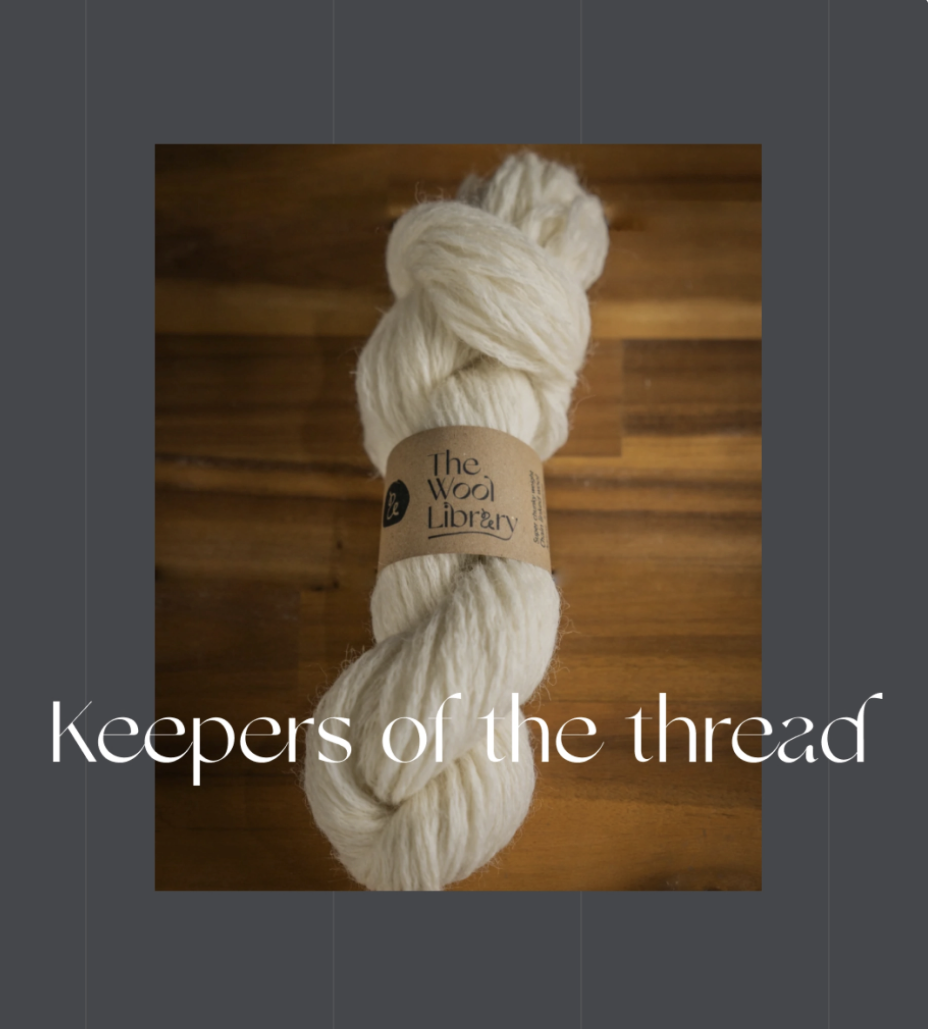
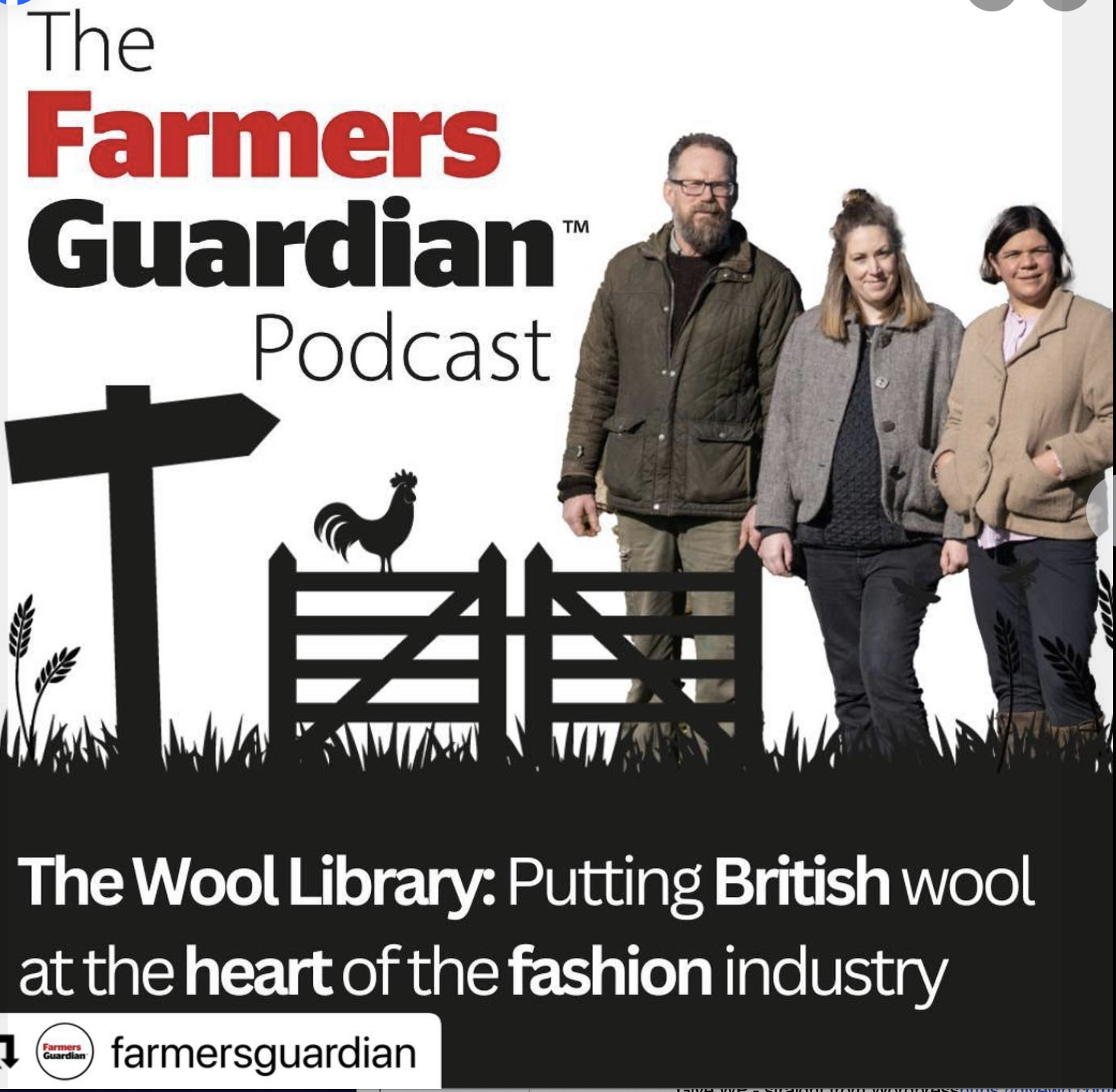
You have really come a long way since the inception of The Wool Library, do you have any reflections on the journey so far?
Not every idea is going to make it – lots of nature fails. So there is always going to be failures. If we had just stuck to our ideas at the beginning we would be broken. You have to be flexible and you have to say ‘that bit’s not working. Let’s evolve’. In my talks I speak about failure being important but I don’t think of these things as failure – I just try something else. I see it as a way to explore how to evolve from this. I can’t think of a word that I would use – It is more like what is the system trying to tell me? What is the potential? So there is this sense of being constantly in process. I don’t want to have a finishing point because the next thing we do will always lead to the next thing.

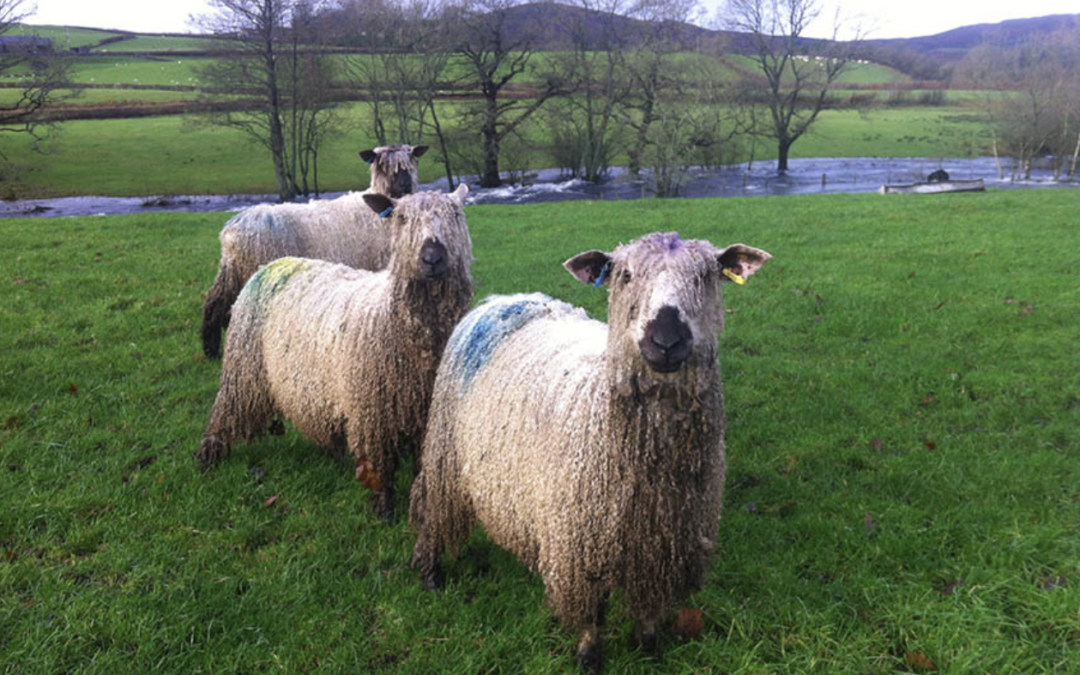
Recent Comments